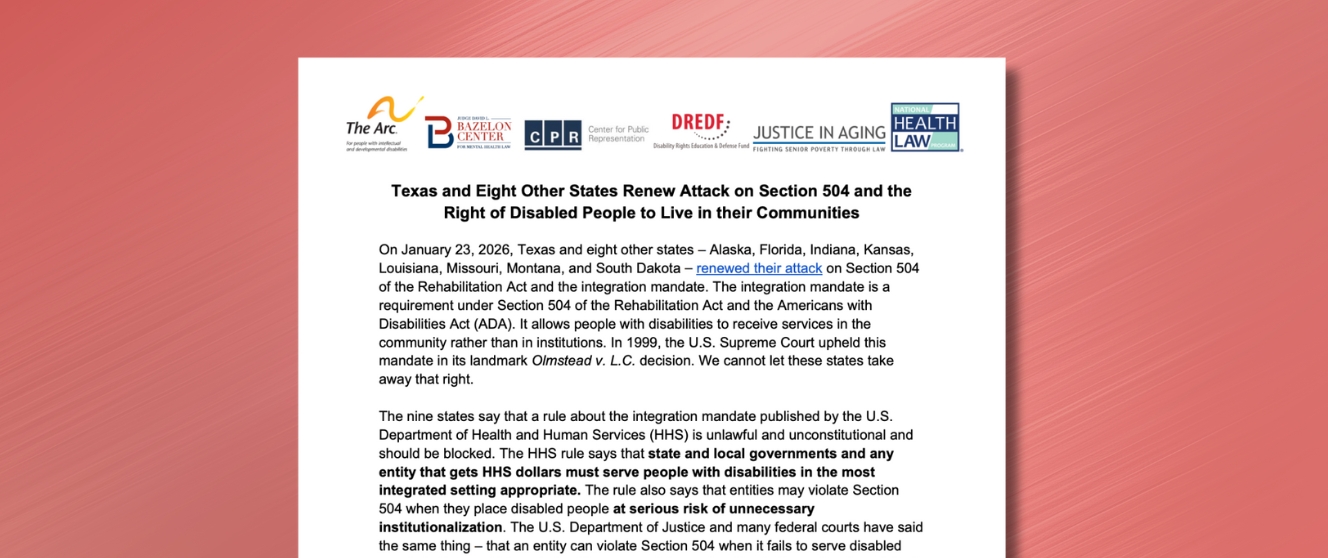Social Security is an essential resource that provides critical income for over 73 million older adults and disabled people. Over 7 million Americans depend on Social Security for at least 90 percent of their income. According to a January 2025 survey, 42 percent of Americans 65 and older “would not be able to afford the basics, such as food, clothing, or housing” without Social Security benefits. Unfortunately, the timing of Social Security payments and attacks from the Trump administration risk causing instability for many Americans.
For those who rely on Social Security and other public benefits to pay their rent, the timing of payments is crucial. Because the timing of Social Security does not always align with paying rent, some people on Social Security struggle to pay their rent on time. Payments that come in after the first of the month, delayed payments, or missed payments can quickly lead to an eviction. Under California law, once a person is late on their rent, the landlord need only issue a three-day notice to pay rent before starting an eviction proceeding, known as an unlawful detainer. After eviction, finding a new home is extremely difficult. Most landlords will not rent to a person with an eviction record. This, in turn, can lead to homelessness.
The Trump Administration’s drastic changes and staff cuts will likely lead to delayed or missing Social Security checks. While the Trump Administration has stated that it will not eliminate Social Security, these drastic changes will undoubtedly adversely impact people. The Social Security Administration was already facing the lowest staffing rate in the last 50 years when the Trump Administration cut 2,000 jobs through buyouts, with plans to cut at least 7,000 more. This means fewer experienced staff are available to ensure the agency runs effectively. Cuts to staff and resources will mean that processing errors and delays are likely to occur. The results of these changes are already harming people who benefit from social security, with incorrect notices and outages in the agency’s online services.
Under the Fair Housing Act and the California Fair Employment and Housing Act, tenants with disabilities can ask a landlord or other housing providers to change policies and practices to account for a person’s disability, which is known as a reasonable accommodation. Tenants can ask for a reasonable accommodation to change the date they pay rent to account for the timing of Social Security payments. This can protect a tenant from an eviction. DREDF has created a template letter for tenants to request reasonable accommodations in response to late or missing Social Security payments, as well as regular payments that do not align with the timing to pay rent. The reasonable accommodation template letter includes a request to change payment schedules, waive late fees, rescind a notice to pay rent, and withdraw an unlawful detainer summons and complaint.
California is taking steps to protect people who rely on Social Security to pay rent. Recently, the California Assembly proposed Assembly Bill 246, the Social Security Tenant Protection Act, which would prohibit a court from starting an unlawful detainer for nonpayment of rent when a tenant is unable to pay their rent because of delayed or missing Social Security checks. This is a step in the right direction to provide greater protections for people who rely on Social Security.
Disclaimer: This blog published by DREDF is available for informational and educational purposes only. It does not create an attorney-client relationship. It should not be considered legal advice on any subject matter or be used as a substitute for legal advice. You should consult with an attorney before you rely on information in this blog.
The information provided on DREDF’s blog is accurate and true to the best of DREDF’s knowledge as of the time it was written. The information provided may not be up to date, and may include omissions, errors or mistakes.
DREDF’s blog may contain links to external, or third-party websites. These links are provided solely for readers’ convenience. Links taken to other sites are at your own risk and DREDF accepts no liability for any linked sites or their content.
If you are seeking legal assistance from DREDF or would like to consult with DREDF on a legal issue, do not use the comments to this blog. Please contact DREDF by calling (510) 644-2555 or by email at info@dredf.org. Any requests for individual legal services submitted here in this blog will not be fulfilled.




